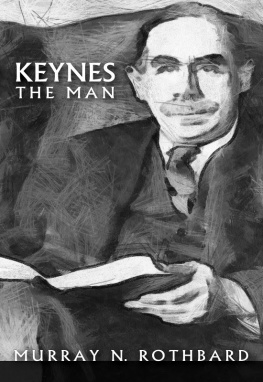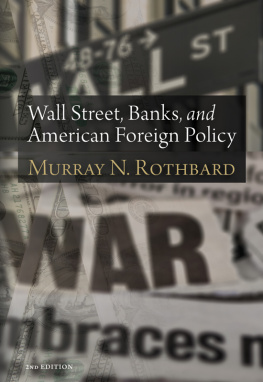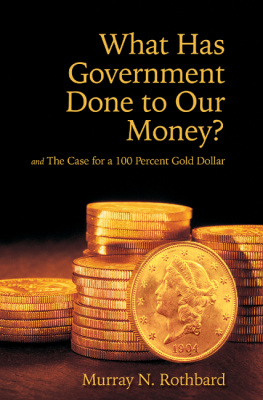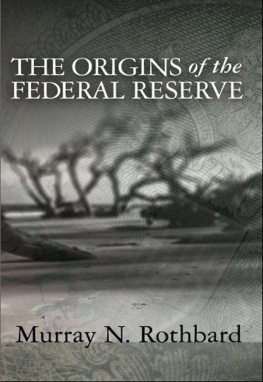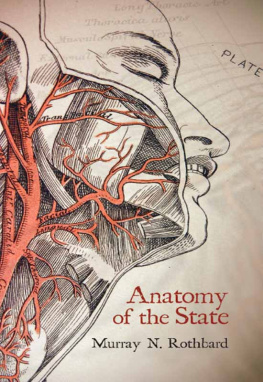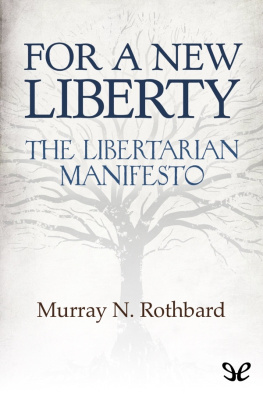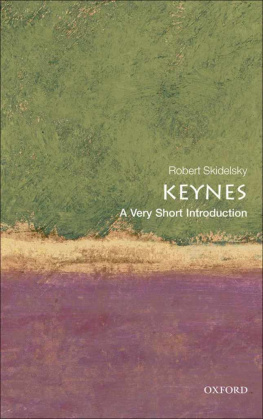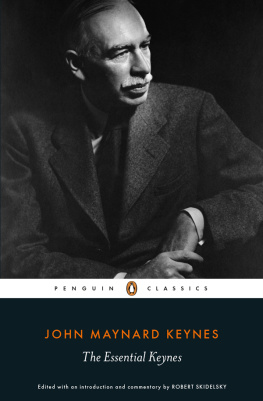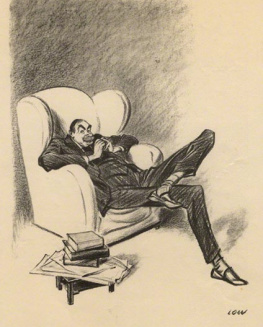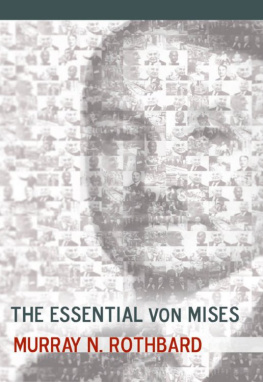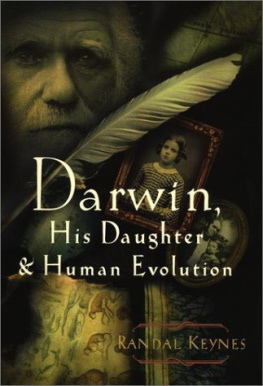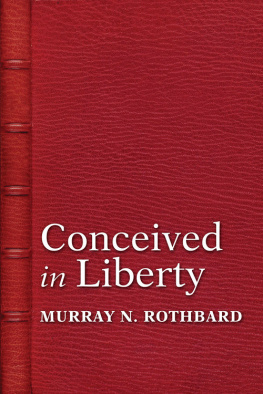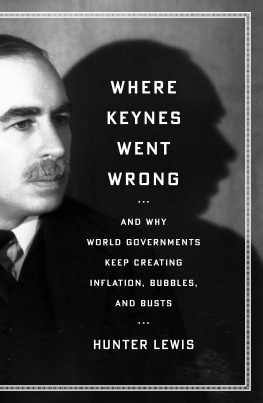Rothbard - Keynes The Man
Here you can read online Rothbard - Keynes The Man full text of the book (entire story) in english for free. Download pdf and epub, get meaning, cover and reviews about this ebook. year: 2007;2010, publisher: Ludwig von Mises Institute, genre: Science. Description of the work, (preface) as well as reviews are available. Best literature library LitArk.com created for fans of good reading and offers a wide selection of genres:
Romance novel
Science fiction
Adventure
Detective
Science
History
Home and family
Prose
Art
Politics
Computer
Non-fiction
Religion
Business
Children
Humor
Choose a favorite category and find really read worthwhile books. Enjoy immersion in the world of imagination, feel the emotions of the characters or learn something new for yourself, make an fascinating discovery.
Keynes The Man: summary, description and annotation
We offer to read an annotation, description, summary or preface (depends on what the author of the book "Keynes The Man" wrote himself). If you haven't found the necessary information about the book — write in the comments, we will try to find it.
Keynes The Man — read online for free the complete book (whole text) full work
Below is the text of the book, divided by pages. System saving the place of the last page read, allows you to conveniently read the book "Keynes The Man" online for free, without having to search again every time where you left off. Put a bookmark, and you can go to the page where you finished reading at any time.
Font size:
Interval:
Bookmark:

Keynes,
the Man
Keynes, the Man
Murray N. Rothbard
LVMI
MISES INSTITUTE

2010 by the Ludwig von Mises Institute and published
under the Creative Commons Attribution License 3.0.
http://creativecommons.org/licenses/by/3.0/
Ludwig von Mises Institute
518 West Magnolia Avenue
Auburn, Alabama 36832
www.mises.org
ISBN: 978-1-933550-72-5
The General Theory was not truly revolutionary at all but merely old and oft-refuted mercantilist and inflationist fallacies dressed up in shiny new garb, replete with newly constructed and largely incomprehensible jargon.
Murray N. Rothbard
Contents
7. The Economist:
Arrogance and Pseudo Originality
Keynes, the Man
J OHN MAYNARD KEYNES, the manhis character, his writings, and his actions throughout lifewas composed of three guiding and interacting elements. The first was his overweening egotism, which assured him that he could handle all intellectual problems quickly and accurately and led him to scorn any general principles that might curb his unbridled ego. The second was his strong sense that he was born into, and destined to be a leader of, Great Britains ruling elite.
Both of these traits led Keynes to deal with people as well as nations from a self-perceived position of power and dominance. The third element was his deep hatred and contempt for the values and virtues of the bourgeoisie, for conventional morality, for savings and thrift, and for the basic institutions of family life.
______________
Originally published in Dissent on Keynes: A Critical Appraisal of Keynesian Economics, edited by Mark Skousen. New York: Praeger (1992), pp. 17198.
Born to the Purple
K EYNES was born under special circumstances, an heir to the ruling circles not only of Britain but of the British economics profession as well. His father, John Neville Keynes, was a close friend and former student of Alfred Marshall, Cambridge professor and unchallenged lion of British economics for half a century. Neville Keynes had disappointed Marshall by failing to live up to his early scholarly promise, producing only a bland treatise on the methodology of economics, a subject disdained as profoundly un-English (J. N. Keynes [1891] 1955).
The classic refuge for a failed academic has long been university administration, and so Neville happily buried himself in the controllership and other powerful positions in Cambridge University administration. Marshalls psyche compelled him to feel a moral obligation toward Neville that went beyond the pure loyalty of friendship, and that sense of obligation was carried over to Nevilles beloved son Maynard. Consequently, when Maynard eventually decided to pursue a career as an economist at Cambridge, two extremely powerful figures at that universityhis father and Alfred Marshallwere more than ready to lend him a helping hand.
The Cambridge Apostle
T HE MOST favored education available to the English elite was secured for Maynard by his doting father. First, he was a scholarship student at College in Eton, the intellectual subdivision of Englands most influential public school. From there, Maynard went on to Kings College, which, along with Trinity, was one of the two dominant colleges at Cambridge University.
At Kings, Maynard was soon tapped for coveted membership in the secret society of the Apostles, an organization that rapidly shaped his values and his life. Keynes grew to social and intellectual maturity within the confines of this small, incestuous world of secrecy and superiority. The Apostles were not simply a social club, in the manner of Ivy League secret fraternities. They were also a self-consciously intellectual elite, especially interested in philosophy and its applications to aesthetics and life.
Apostle members were chosen almost exclusively from Kings and Trinity, and they met every Saturday evening behind locked doors to deliver and discuss papers. During the rest of the week, members virtually lived in each others rooms. Moreover, Apostleship was not simply an undergraduate affair; it was membership for life and cherished as such. For the rest of their lives, adult Apostles (known as Angels), including Keynes, would often return to Cambridge for meetings, and they participated actively in recruiting new undergraduates.
In February 1903, at the age of 20, John Maynard Keynes took his place as Apostle number 243 in a chain that stretched back to the societys founding in 1820. For the next five or six formative years, Maynard spent almost all his private life among the Apostles, and his values and attitudes were shaped accordingly. Furthermore, most of his adult life was spent among older and newer Apostles, their friends, or their relations.
An important reason for the potent effect of the Society of the Apostles on its members was its heady atmosphere of secrecy. As Keyness biographer, Robert Skidelsky, writes,
One should never underestimate the effect of secrecy. Much of what made the rest of the world seem alien sprang from this simple fuel. Secrecy was a bond which greatly amplified the Societys life relative to its members other interests. It is much easier, after all, to spend ones time with people from whom one does not have to keep large secrets; and spending much time with them reinforces whatever it was that first drew them together. (Skidelsky 1983, p. 118; see also Deacon 1986)
The extraordinary arrogance of the Apostles is best summed up in the Societys Kantian half joke: that the Society alone is real, whereas the rest of the world is only phenomenal. Maynard himself would refer to non-Apostles as phenomena. What all this meant was that the world outside was regarded as less substantial, less worthy of attention than the Societys own collective life.
It was a joke with a serious twist (Skidelsky 1983, p. 118). It was owing to the existence of the Society wrote Apostle Bertrand Russell in his Autobiography, that I soon got to know the people best worth knowing. Indeed, Russell remarked that when the adult Keynes left Cambridge, he traveled the world with a feeling of being the bishop of a sect in foreign parts. True salvation for Keynes, remarked Russell perceptively, was elsewhere, among the faithful at Cambridge (Crabtree and Thirlwall 1980, p. 102). Or, as Maynard himself wrote during his undergraduate days in a letter to his friend and co-leader, Giles Lytton Strachey, Is it monomaniathis colossal moral superiority that we feel? I get the feeling that most of the rest [of the world outside the Apostles] never see anything at alltoo stupid or too wicked (Skidelsky 1983, p. 118).
Two basic attitudes dominated this hermetic group under the aegis of Keynes and Strachey. The first was their overriding belief in the importance of personal love and friendship, while scorning any general rules or principles that might limit their own egos; and the second, their animosity toward and contempt for middle-class values and morality. The Apostolic confrontation with bourgeois values included praise for avant-garde aesthetics, holding homosexuality to be morally superior (with bisexuality a distant second), and hatred for such traditional family values as thrift or any emphasis on the future or long run, as compared to the present. (In the long run, as Keynes would later intone in his famous phrase, we are all dead.)
______________
Asking himself why the eminent constitutional historian Frederic W. Maitland had no influence over the Apostles in this era, even though a member, Derek Crabtree answers that Maitland was unfortunate enough to hold his chair at Downing College, one of the lesser, uninfluential colleges at Cambridge (see Crabtree 1980, pp. 18-19).
Font size:
Interval:
Bookmark:
Similar books «Keynes The Man»
Look at similar books to Keynes The Man. We have selected literature similar in name and meaning in the hope of providing readers with more options to find new, interesting, not yet read works.
Discussion, reviews of the book Keynes The Man and just readers' own opinions. Leave your comments, write what you think about the work, its meaning or the main characters. Specify what exactly you liked and what you didn't like, and why you think so.

